 Students Passed to the next year – what about the Learning? Atul Bengeri, the Chief Learning Influencer of Acumen Today Pvt Ltd finds answer to this.
Students Passed to the next year – what about the Learning? Atul Bengeri, the Chief Learning Influencer of Acumen Today Pvt Ltd finds answer to this.
There cannot be a time in our near future, like it has never been in the past of our lives that we have lived; that we will come across such a situation. Extraordinary times need extraordinary measures and this is the time for it.
While the world is grappling with a pandemic, let not the students, especially the ones in their foundational years lose out on the learning days and the learning momentum.A good learning atmosphere, learning environment and learning momentum is needed to bring about focused learning outcomes. While learning does not start at the school and end at school, it is very important to understand the importance of learning and applying the learning from an early age; it is very important to bring about the meaning to the learning; its paramount that the learning helps in paving a strong foundation for life-long learning and it carries even more significance that the learning should get reinforced time and again.
The emphasis on Learning and learning outcomes is not new;it has been in vogue for almost 3 decades now.
The National Policy on Education 1986, and the Programme of Action 1992 emphasized that Minimum Levels of Learning (MLLs) should be laid down and children’s learning should periodically be assessed to keep a track of their progress towards ensuring that “all children acquire at least the minimum levels of learning”.
Learning Outcomes are assessment standards indicating the expected levels of learning that children should achieve for that class. These outcomes can be used as check points to assess learning at different points of time. The learning outcomes would help teachers to understand the learning levels of children in their respective classes individually as well as collectively. Learning outcomes should be the point of reference for conducting achievement surveys. Hence it is necessary that the defined Learning Outcomes are also shared with parents and community at large.(https://mhrd.gov.in/sites/upload_files/mhrd/files/Learning_outcomes.pdf)
With the recent board examination results announced, a student scoring less than 90% seems to be almost a failure. A staggering 1.84 lakh students scored above 90% which is close to 10% in 2020 of the overall students have scored above 90% marks.(http://cbse.nic.in/newsite/statisticalInformation.html).
The numbers look to be very attractive and paints a rosy picture of the outcomes.
There were close to 13% the overall students who scored above 90% marks in the previous year – 2019.Additionally, the students scoring more than 95% in the year 2020 is at 2.23% compared to that of 3.25% in 2019.While there is slight dip in the high scoring numbers, probably it could be due to the pandemic, but it can’t be completely attributed to that one factor alone.
If marks scored are a measure of the learning outcomes, this year has seen a dip at the higher percentage segment – cause of worry!
While the Minimum Levels of Learning (MLLs) have been implemented for almost 3 decades now, it is very clear that the Learning outcomes that were and are assessed were and are mainly driven by the marks the students scored, leading to a rat race for scoring marks, more marks.
If marks were to be so important, why is the industry facing severe crunch of qualified and employable candidates? Well, that’s a separate discussion altogether. Lets keep that aside for the time being.
Let us look at the foundational education approach and how it is being handled.
Looking at the early schooling statistics; referencing the Annual Status of Education Report (ASER), the report of 2019 paints a gloomy picture of our Learning outcomes.
- Only 16% of children in Class 1 in 26 surveyed rural districts can read text at the prescribed level while almost 40% can’t even recognize letters.
- Only 41% of these children could recognize two digit numbers.
- Two-thirds of those in the Class 2cannot read a text at age 7 that they were meant to read a year earlier.
- The performance only marginally improves for those in the Class 3. There are similar inadequacies for numeracy skills.
If the foundational literacy and numeracy is not attained at this age, it becomes a compounding effect going forward and leads to even worse outcomes, failures and drop outs.
The education system is pushing forward a colossal learning deficit year-on-year and passing the responsibility from a lower grade to a higher grade, putting an insurmountable burden on the entire education system.
When the learning outcomes are so dismal at the early school level, how can we expect quality output at a later stage, again leads to the employability question?
According to NASSCOM, in India, more than 3 million graduates and postgraduates join the industry work pool. Of these, only 25 per cent of technical and 10-20 per cent of non-technical graduates are certified as ’employable’ by the IT and ITES sections in the country.
Overall, there is a compelling need to overhaul the education system and ensure that the outcomes are not necessarily judged and measured by the marks & the score card; but it prepares the students to be successful in life by being employable or prepare them to be entrepreneurs. Thankfully, the National Education Policy 2019 is to our rescue.
The National Education Policy 2019 (draft); albeit, still a draft; is the vaccine for the education pandemic India is confronting. A detailed analysis of the challenges, gaps and also suggestions that are to be implemented on a war footing.
But for the pandemic, it would have got implemented from the academic year 2020-2021. The transformations as suggested in the draft document are apt and pertinent to the present situation wherein the need for looking at the basics of education and the outcome of education is put to test.
An amalgamation of bringing back the focus in learning, learning basic concepts and enablement to apply the concepts, 21st century skills and the ability to apply one’s think process and bring about a change in creating and transforming our nation into self-sustaining, equitable and a vibrant knowledge economy by envisioning an India-centered education system.
Challenges as identified in the Primary Education segment
- We are in a severe learning crisis; a large proportion of students in the elementary school have not attained foundational literacy and numeracy
- If action is not taken soon, over the next few years, the country could lose 10 crore or more students from the learning system and to illiteracy.
- Attaining foundational literacy and numeracy for all children must become an immediate national mission and an indispensible, non- negotiable part of the curriculum.
- A large proportion of students that fall behind during their elementary school years in fact fall behind already during the first few weeks of Grade 1.
- There is a severe learning crisis in India, where children are enrolled in primary school but are failing to attain even basic skills such as foundational literacy and numeracy.
- The curriculum in early grades moves very quickly towards rote learning and more mechanical academic skills.
- Teacher capacity also plays a central role in the attainment of foundational skills
Focus Areas of the policy
The entire emphasis is on Learning, the learner and the learning outcomes.
The draft Policy accommodates changes at all degrees of education from school to advanced – Higher education. It attempts to build the emphasis on early childhood care (ECCE), focus on the Learning, competencies & skills, change the present test / assessment framework, reinforce instructor preparing and rebuild the education administrative system. It additionally tries to set up a National Education Commission, increment open interest in education, fortify the utilization of innovation and increment centers around professional and grown-up education, among others.
The Committee also noticed that the present education framework exclusively centers around Rote Learning of certainties and methods. Thus, it prescribes that the educational plan load in each subject ought to be diminished to its fundamental core substance – the Conceptual Learning. This would make space for comprehensive, exchange and analysis based learning.
Curriculum system: The present structure of school education must be rebuilt based on the development needs of alternates. This would comprise of a 5-3-3-4 structure involving: (I) 5 years of essential stage (three years of pre-elementary school and classes 1 and 2), (II) 3 years of preliminary stage (classes 3 to 5), (III) 3 years of center stage (classes 6 to 8), and (IV) 4 years of optional stage (classes 9 to 12).
Highlights of the policy
- Supervised play-based education, in groups and individually, is considered particularly important during this age range to naturally build up the child’s innate abilities and all-important lifelong skills of cooperation, teamwork, social interaction, compassion, equity, inclusiveness, communication, cultural appreciation, playfulness, curiosity, creativity, as well as the ability to successfully and respectfully interact with teachers.
- It is important that children of ages 3-8 have access to a flexible, multifaceted, multilevel, play-based, activity-based, and discovery-based education.
- Emphasis will be in general, on the reading, writing, and speaking of languages and on mathematical ideas and thinking. Indeed, the curriculum in early grades moves very quickly towards rote learning and more mechanical academic skills.
- If students are given a solid foundation in reading, writing, speaking, counting, arithmetic, mathematical and logical thinking, problem-solving, and in being creative, then all other future lifelong learning will become that much easier, faster, more enjoyable, and more individualized; all curriculum and pedagogy in early grade school must be designed with this principle in mind.
- Every child in Grades 1-5 will have a workbook for languages and mathematics in addition to the school textbook. This will ensure that grade-appropriate, creative, and engaging practice opportunities are available for each child to work at his/her own pace.
- Lay the general groundwork across subjects, including reading, writing, speaking, physical education, art, languages, science, and mathematics, so that students are prepared to delve deeper into learning areas through specialized subjects.
- The entire school education curriculum will be reoriented to develop holistic learners and develop in learners higher order skills of critical thinking, creativity, logical deduction, collaboration/teamwork, social responsibility, multilingualism, quantitative reasoning, and digital literacy.
- Reduce curriculum load in each subject to its essential core content, in order to make space for more holistic, experiential, discussion-based, and analysis-based learning.
Games, puzzles, and problem-solving activities, including word puzzles, spatial reasoning, wordplay, strategy, logic, arithmetic, and play with large numbers, will be seriously incorporated
- throughout the curriculum, particularly in the mathematics curriculum, in order to develop a love for thinking, logical deduction, quantitative reasoning, and creativity.
- Assessment will be redesigned to primarily test core concepts and skills along with higher order capacities such as critical thinking, analysis, and conceptual clarity rather than rote memorization.
Objectives of the Policy
- Every child in the age range of 3 – 6 years has access to free, safe, high quality, developmentally appropriate care and education by 2025
- Curriculum and pedagogy are transformed by 2022 in order to minimize rote learning and instead encourage holistic development and 21st Century Skills such as Critical Thinking, Creativity, scientific temper, communication, collaboration, multilingualism, problem solving, ethics, social responsibility and digital literacy.
- The culture of assessment must shift from one that primarily tests rote memorization to one that is more formative, promotes learning and tests higher order skills such as analysis, critical thinking, and conceptual clarity.
- Ensure that all students at all levels of school education are taught by passionate, motivated, highly qualified, professionally trained and well equipped teachers.
- The high respect for teachers and the high status of the teaching profession must be revived and restored for the very best to be inspired to enter the profession.
When the overall learning outcomes are deteriorating and the application of the learning is nowhere near the acceptable norms; there needs an urgent intent to get the National Education Policy (NEP) implemented on a war footing.
What better time than now!
(Author is the Director & Chief Learning Influencer at Acumen Today Pvt., Ltd., is an Industry expert with over 20 years of experience in various areas of education and related fields in India having worked with companies like Siemens, Intel & Dell. Now an entrepreneur, working on redefining the education norms to focus on the basics and fundamentals of Learning to Enable, Enrich and Empower the Educators and Learners alike.)





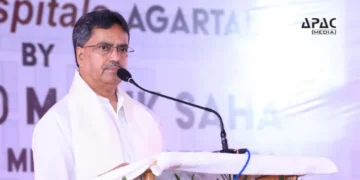


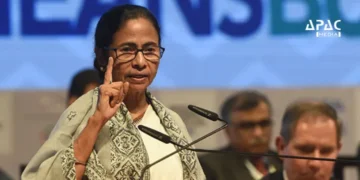









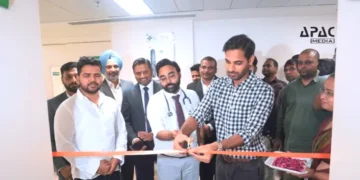






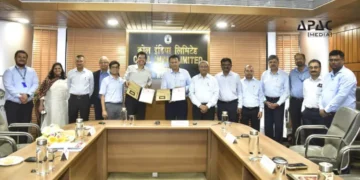

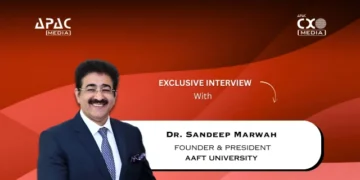


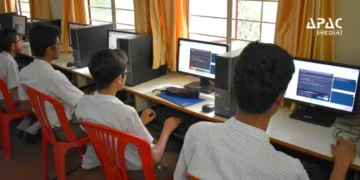

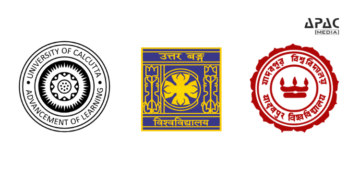

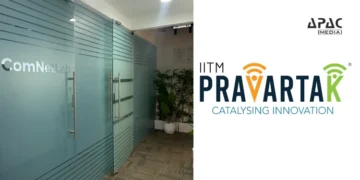




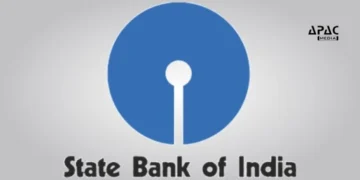



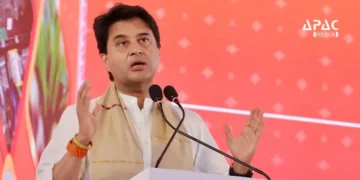

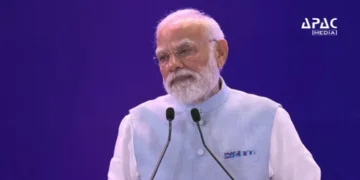























Discussion about this post